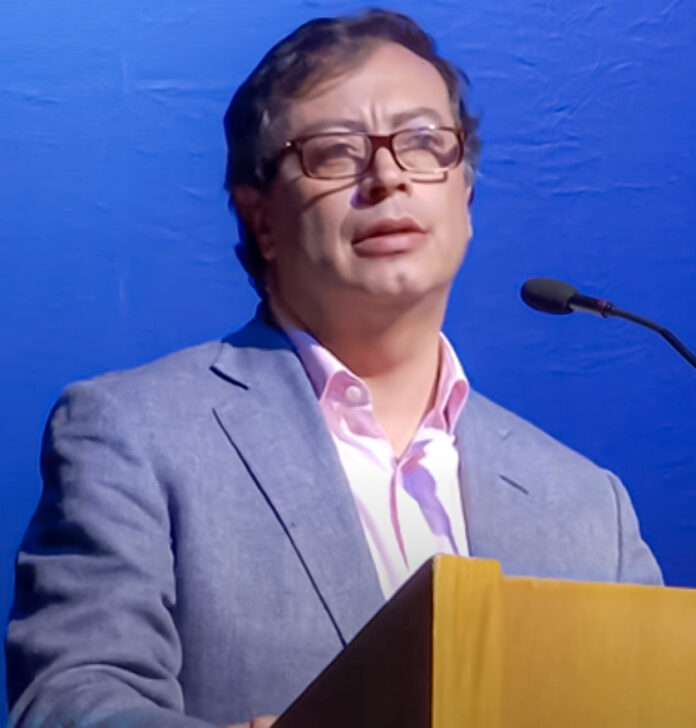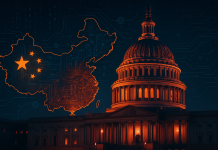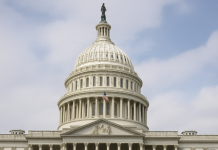The United States has moved to revoke the entry visa of Colombian President Gustavo Petro following his participation in a protest outside the United Nations in New York, where he urged U.S. soldiers to defy President Donald Trump’s orders. The announcement, made by the State Department on Friday, escalates an already tense relationship between the two leaders.
Petro was in New York for the U.N. General Assembly when he addressed demonstrators who had gathered to denounce Israel’s campaign in Gaza. Using a megaphone, he called on American troops not to turn their weapons on civilians, telling them to reject Trump’s commands and instead act “in service of humanity.” Standing beside him was Roger Waters, the co-founder of Pink Floyd, who has been a vocal supporter of the Palestinian cause. Photos later circulated online of the two men with a Palestinian flag, further amplifying the moment.
The State Department posted on X that Petro’s actions were considered “reckless and incendiary,” confirming that his visa would be canceled. Officials did not clarify whether the Colombian leader remained in the U.S. at the time of the announcement. Bogotá’s foreign ministry did not issue an immediate response.
The development follows Petro’s sharp criticisms during his U.N. address earlier in the week, where he accused Washington of complicity in mass civilian deaths in Gaza and condemned U.S. missile strikes in the Caribbean that targeted vessels alleged to be carrying narcotics. According to Petro, those killed were not traffickers but impoverished young people with limited options. He called for criminal charges against Trump and senior officials over the attacks.
This latest clash underscores a broader breakdown in U.S.–Colombia relations since Trump’s return to the White House. Earlier in the year, Trump threatened sweeping tariffs on Colombian imports when Petro initially refused to accept flights carrying deported migrants. Though Petro relented and allowed the flights, the episode left both governments on edge.
Petro, Colombia’s first president from the political left and a former member of a Marxist guerrilla group, has often diverged from Washington on foreign policy. His critiques of Israel’s military operations and his calls for international recognition of Palestine have put him at odds with the U.S., a key ally of Israel.
The decision to revoke his visa also comes at a time when Washington has tightened scrutiny on voices critical of Israel at the U.N. Palestinian Authority President Mahmoud Abbas was unable to attend the assembly after his visa request was denied, prompting accusations that the U.S. was limiting access in violation of its host country obligations. American officials have countered that national security and foreign policy considerations allow them to restrict entry in certain cases.
Despite the friction, Colombia remains economically tied to the U.S., its largest trading partner and main partner in counternarcotics cooperation. The visa cancellation may complicate diplomatic exchanges but does not sever those long-standing connections.
Still, Petro’s stance and Washington’s response reflect widening fault lines on issues ranging from drug enforcement to Middle East policy. Whether the dispute deepens into a more lasting rupture will depend on how both sides navigate the fallout in the weeks ahead.
Image is licensed under the Creative Commons Attribution 3.0 Unported license and was created by CLACSOtv.








